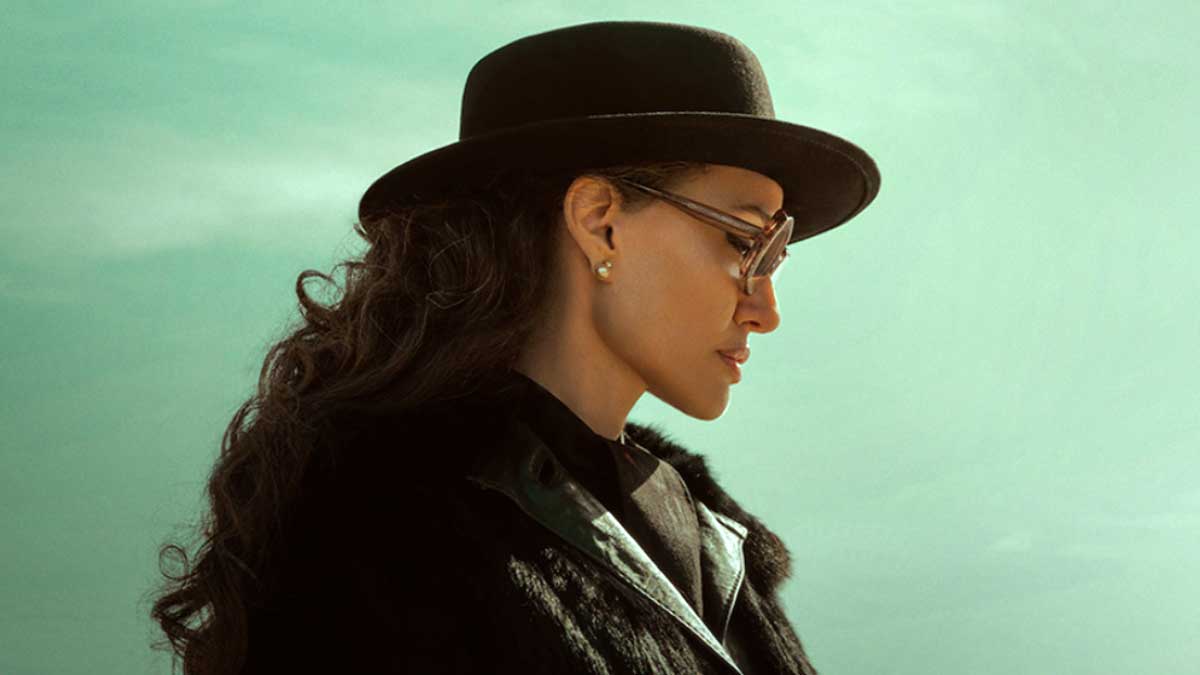- Home
- Billionaires
- Investing Newsletters
- 193CC 1000
- Article Layout 2
- Article Layout 3
- Article Layout 4
- Article Layout 5
- Article Layout 6
- Article Layout 7
- Article Layout 8
- Article Layout 9
- Article Layout 10
- Article Layout 11
- Article Layout 12
- Article Layout 13
- Article Layout 14
- Article Sidebar
- Post Format
- pages
- Archive Layouts
- Post Gallery
- Post Video Background
- Post Review
- Sponsored Post
- Leadership
- Business
- Money
- Small Business
- Innovation
- Shop
Recent Posts
Angelina Jolie Nominated for Golden Globe for Maria Biopic

Angelina Jolie has earned a Golden Globe nomination for her portrayal of legendary opera singer Maria Callas in the biographical drama Maria, which will debut on Netflix this Wednesday, Dec. 11, just ahead of what would have been Callas’ 101st birthday. The film, which marks Jolie’s first time singing on-screen in her decades-long acting career, has garnered attention for the actress’s impressive performance, which has been recognized by critics as one of her best.
Jolie was nominated for Best Actress alongside other celebrated actresses such as Pamela Anderson, Nicole Kidman, Tilda Swinton, Fernanda Torres, and Kate Winslet. This nomination is the culmination of nearly seven months of intense preparation, during which Jolie trained extensively to portray Callas, including learning to sing publicly for the first time. The role, based on Callas’ life and legacy, showcases Jolie’s dedication and commitment to bringing the iconic diva’s story to the screen. Early reviews have praised her performance, with some calling it a “career-best.”
Maria tells the story of Callas’ final years in the 1970s, capturing her struggles as a renowned opera singer who was equally celebrated for her talent and scrutinized for her tumultuous personal life. Born in New York in 1923 to Greek parents, Callas rose to fame in the mid-20th century as one of the world’s most celebrated opera singers. Her voice, described as powerful and unique, was capable of spanning nearly three octaves, but it also divided critics, making her a polarizing figure in the world of classical music. Despite her extensive success, Callas’ personal life was marred by scandal and hardship, including highly publicized relationships and an infamous affair with Greek shipping magnate Aristotle Onassis.
Callas’ life, characterized by both fame and tragedy, has continued to fascinate the public. Even after her death in 1977 at the age of 53, she remains one of the best-selling classical artists of all time. In 2007, she was posthumously awarded the Grammy Lifetime Achievement Award. Her legacy has been immortalized in numerous ways, including the opening of a museum dedicated to her in Athens in 2023, an exhibit called “Diva” at London’s V&A Museum, and the unveiling of a controversial statue of Callas in Athens in 2021.
The film explores the dichotomy between Callas’ public persona as the world’s “greatest diva” and the more private, tragic aspects of her life. Her affair with Onassis, which began in the late 1950s, was particularly fraught, with reports of manipulation and abuse. Despite Onassis ultimately marrying Jacqueline Kennedy, there are claims that he and Callas continued to see each other in secret. In addition to her personal struggles, Callas faced betrayal by those closest to her. She accused her first husband, industrialist Giovanni Battista Meneghini, of stealing a large portion of her earnings during their marriage, and she claimed that the head of the Juilliard School in New York attempted to sabotage her career after she rejected his advances. The opera singer also accused her mother of attempting to sell her to Nazi soldiers during World War II, an accusation that highlighted the strained relationship between the two.
In her portrayal of Callas, Jolie must navigate these complex layers of the diva’s life, from the opera singer’s brilliance to her tragic personal affairs. Maria presents an intimate portrait of the woman behind the legend, exploring her resilience in the face of public and private battles. Critically, Jolie’s portrayal has been described as breathtaking, with some calling her performance the emotional heart of the film. Critics have acknowledged the warmth and depth she brings to the role, elevating the film’s exploration of Callas’ emotional landscape. However, not all reviewers have been completely enamored with director Pablo Larraín’s take on the subject matter. While some have praised the film, others have criticized its approach. Peter Travers of ABC News called Larraín’s vision a “muffled film take,” saying it left viewers “on the outside looking in.” Kyle Turner of Slant Magazine also lamented that Larraín reduced a “female icon” to a mere “kitschy postage stamp” in an effort to reflect Callas’ complexity.
Maria premiered at the Venice International Film Festival in August and had a limited theatrical release in late November before its Netflix debut. The film has received generally positive reviews, currently holding a 75% critics score and a 78% audience score on Rotten Tomatoes. Despite mixed reactions to its directorial style, the consensus is that Jolie’s performance is a standout. Her work as Callas is being recognized as one of the best of her career, further cementing her status as one of Hollywood’s most talented actresses.
The Golden Globe nomination adds to Jolie’s impressive award history. She has won three Golden Globe Awards in the past, two for Best Supporting Actress for Girl, Interrupted (2000) and George Wallace (1998), and one for Best Actress in a Made-for-TV Movie for Gia (1999). In addition to her Golden Globes, Jolie has been nominated for several other awards throughout her career. Her performance in Maria is expected to garner further recognition, including potential nominations for the Academy Awards and other prestigious honors.
Maria marks the third biographical film directed by Larraín about a 20th-century female icon, following Jackie (2016), which starred Natalie Portman as Jacqueline Kennedy, and Spencer (2021), about Princess Diana, which starred Kristen Stewart. Both films received critical acclaim, with Stewart earning a Best Actress nomination at the Academy Awards for her role in Spencer. Larraín’s films often explore the complex, multifaceted lives of women in the public eye, and Maria is no exception. As the film is set to premiere on Netflix, it will undoubtedly introduce Callas’ story to a new generation of viewers, while reminding audiences of the singer’s lasting impact on both the world of music and popular culture.
Recent Posts
Categories
- 193cc Digital Assets2
- 5G1
- Aerospace & Defense46
- AI36
- Arts3
- Banking & Insurance11
- Big Data3
- Billionaires324
- Boats & Planes1
- Business321
- Careers13
- Cars & Bikes75
- CEO Network1
- CFO Network17
- CHRO Network1
- CIO Network1
- Cloud10
- CMO Network18
- Commercial Real Estate7
- Consultant1
- Consumer Tech173
- CxO1
- Cybersecurity61
- Dining1
- Diversity, Equity & Inclusion4
- Education7
- Energy8
- Enterprise Tech29
- Events11
- Fintech1
- Food & Drink2
- Franchises1
- Freelance1
- Future Of Work2
- Games141
- GIG1
- Healthcare77
- Hollywood & Entertainment183
- Houses1
- Innovation42
- Investing2
- Investing Newsletters4
- Leadership65
- Lifestyle11
- Manufacturing1
- Markets20
- Media191
- Mobile phone1
- Money13
- Personal Finance2
- Policy561
- Real Estate1
- Research6
- Retail1
- Retirement1
- Small Business1
- SportsMoney32
- Style & Beauty1
- Success Income1
- Taxes2
- Travel10
- Uncategorized8
- Vices1
- Watches & Jewelry2
- world's billionaires294
Related Articles
‘Star Wars: Skeleton Crew’ Faces Budget-Viewership Challenge
“Star Wars: Skeleton Crew” has made a strong impression with its first...
By 193cc Agency CouncilDecember 11, 2024BTS’s V Scores Another No. 1 with ‘Winter Ahead’
V, the charismatic vocalist from the globally renowned K-pop group BTS, continues...
By 193cc Agency CouncilDecember 11, 202428 Days Later Returns to Digital Ahead of 28 Years Later Sequel
The long-awaited return of 28 Days Later to streaming services has been...
By 193cc Agency CouncilDecember 11, 2024Pushpa 2: The Rule Nears $100 Million After Record Weekend
The much-anticipated Telugu film Pushpa 2: The Rule has quickly made a...
By 193cc Agency CouncilDecember 10, 2024















Leave a comment